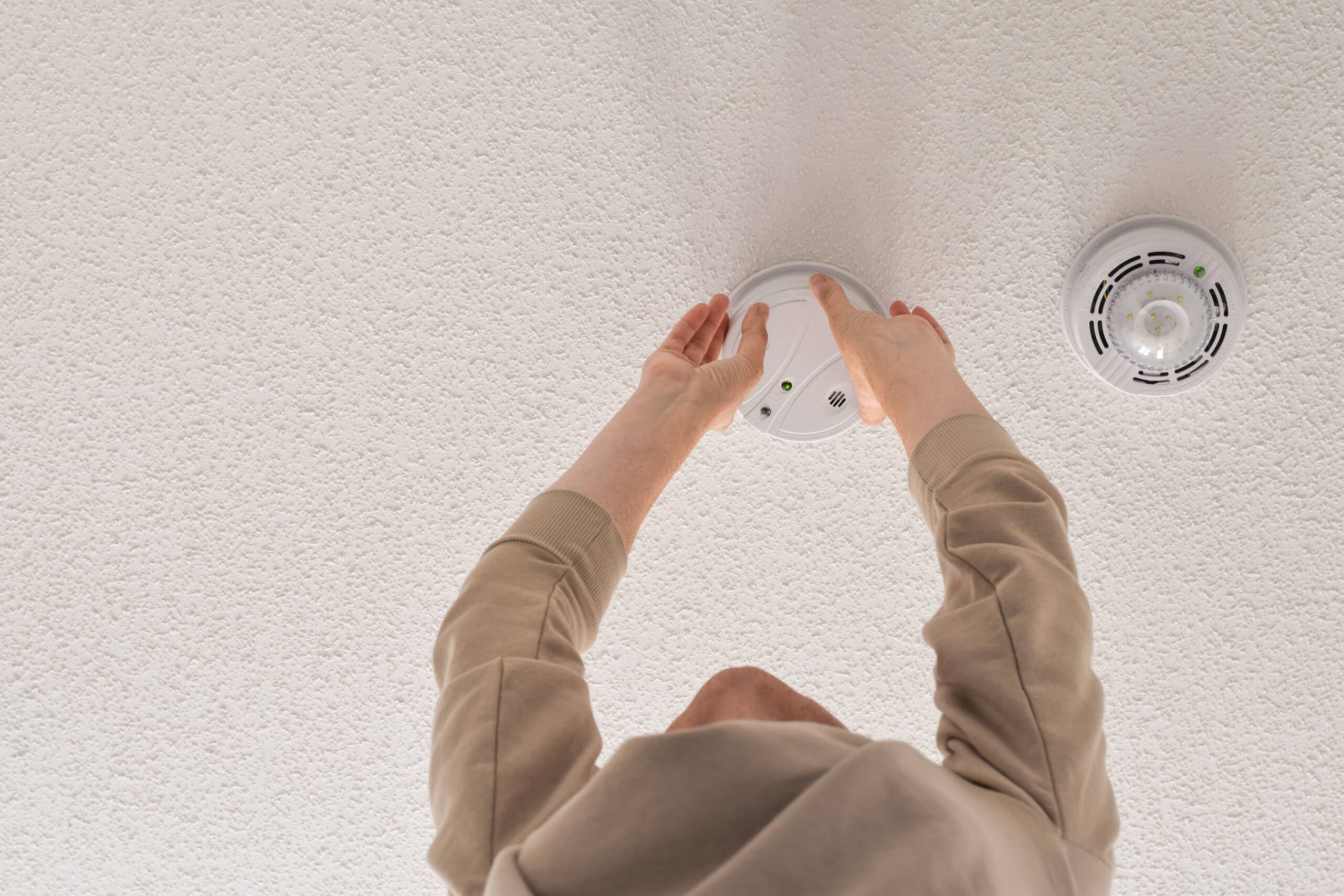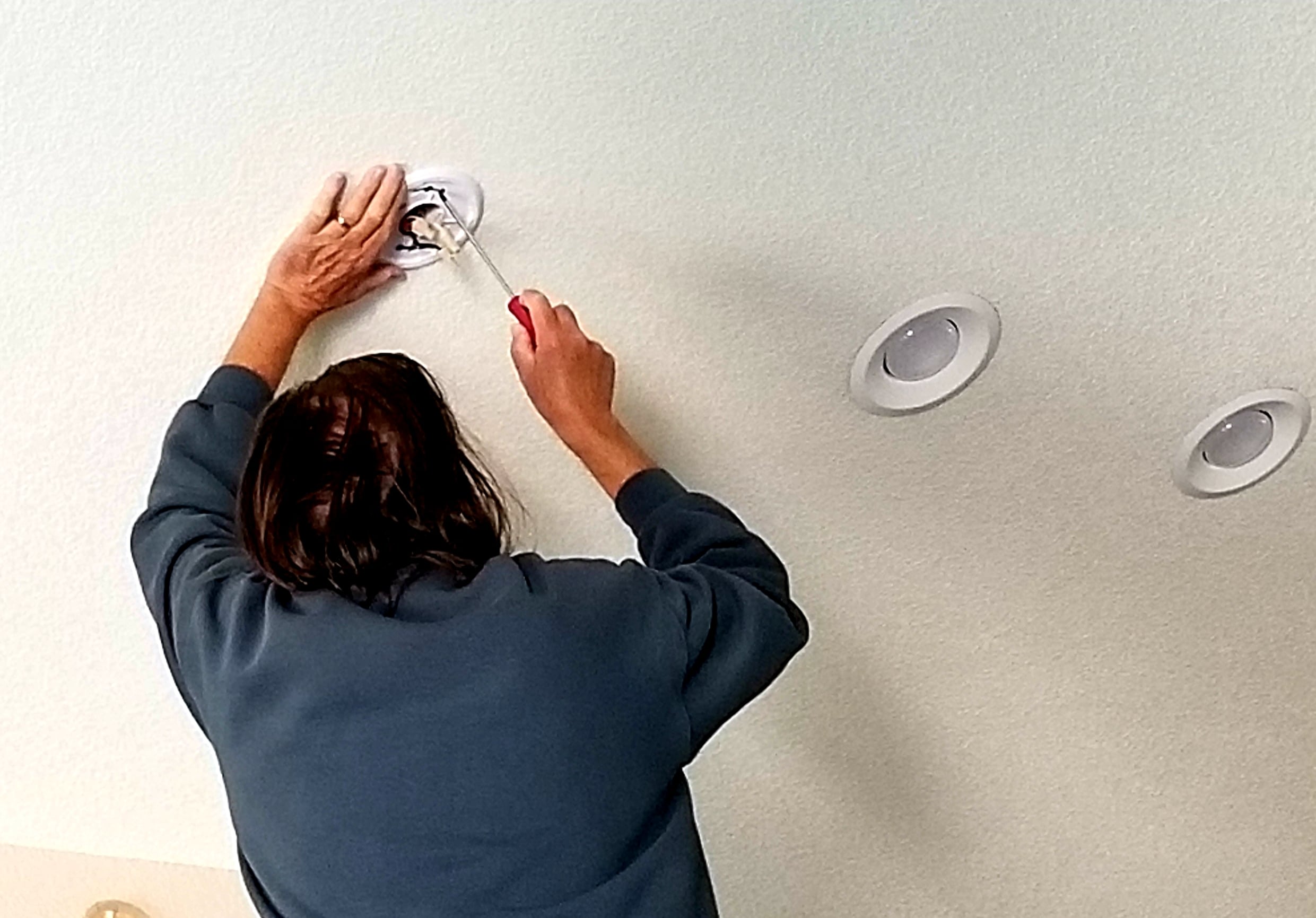Smoke Alarm Compliance Certificate QLD | A Necessity or a Waste of Time?
Get a Quote
It's quick and easy to get a quote.
Simply leave us your name, phone number and what you need quoted and one of our expert conveyancing solicitors will call you straight back.


A smoke alarm compliance certificate QLD is a document issued by a licensed professional to confirm that a property’s smoke alarms meet Queensland’s current legal standards. It is not a government-issued form. Instead, it is typically prepared after a site inspection by an electrician or qualified smoke alarm technician.
In Queensland, all residential properties sold under a contract dated 1 January 2022 or later must comply with updated smoke alarm laws. These laws require photoelectric alarms that are interconnected, correctly located, powered appropriately, and less than ten years old.
Importantly, sellers are not legally required to produce a smoke alarm compliance certificate as part of the sale. The legislation focuses on ensuring that the alarms themselves are compliant, not on the presentation of formal documentation.

Who Can Issue a Smoke Alarm Compliance Certificate?
When a smoke alarm compliance certificate is requested, it must come from a qualified professional who has the authority to assess and confirm compliance under Queensland law.
For properties with hardwired smoke alarms, only a licensed electrician is permitted to inspect the system and issue certification. This includes checking electrical connections, power supply, and proper installation.
For battery-operated smoke alarm systems that meet legal standards, a qualified smoke alarm technician may also issue a written compliance report. These professionals are trained to verify that the alarm system satisfies the necessary requirements, including placement, type, interconnection, and age of each unit.
The role of the certifier is to inspect the alarm system, ensure it aligns with the smoke alarm legislation, and provide clear documentation that can be passed on to the seller’s legal representative or the buyer, if requested under contract terms.
What Sellers Should Do Once a Certificate Has Been Issued
Once a smoke alarm compliance certificate or written report has been issued, sellers should take a few simple but important steps to ensure the transaction proceeds without disruption. While providing the certificate is not a legal requirement by default, it plays a key role in helping your legal representative complete the required forms and meet contract obligations, especially if the buyer or their agent has requested supporting documentation.
Here is a step-by-step guide to follow:
- Review the certificate for accuracy
Check that the document includes the correct property address, date of inspection, and the name and licence number of the technician or company that issued it. - Send the certificate to your solicitor or conveyancer
This allows your legal representative to complete Form 24 accurately and confirm compliance on your behalf during the transfer of title. - Confirm whether the buyer has requested written evidence
If the contract includes a special condition requiring proof of compliance, providing the certificate is necessary. Your solicitor or conveyancer can help confirm this. - Store a copy for your records
Save both a printed and digital version of the certificate. Buyers or agents may request a copy before or after settlement, especially during final inspections or handover. - Act quickly if corrective work is required
If the inspection revealed non-compliance, arrange for any necessary upgrades and request an updated certificate before settlement to avoid possible penalties or delays.
Taking these steps ensures that you meet your legal obligations and give your conveyancer everything needed to finalise the sale with minimal back-and-forth.

What the REIQ Contract Says About Smoke Alarm Compliance
The standard REIQ residential contract requires the seller to confirm whether compliant smoke alarms are installed at the property. This declaration is made within the contract itself and is based on the seller’s knowledge. There is no automatic requirement to supply a certificate unless it is included as a special condition.
However, if the seller states that the property is compliant and this turns out to be inaccurate, there may be financial consequences under Clause 7.8 of the contract terms.
The buyer may claim a 0.15% reduction of the purchase price, but only if:
- The property does not comply with smoke alarm laws by the settlement date, and
- The buyer provides written notice of their claim on or before settlement.
The buyer cannot terminate the contract over non-compliance, but this price reduction serves as a limited contractual remedy.
To make these obligations and outcomes easier to understand, here is a summary:
Smoke Alarm Compliance in the REIQ Contract: Key Points
| Requirement | If Not Met | What the Buyer Can Do |
| Seller must confirm smoke alarms are compliant | Risk of providing incorrect or misleading info | Claim 0.15% price reduction (must be in writing before settlement) |
| Seller must comply with smoke alarm legislation | Non-compliance by settlement is a breach | Cannot terminate, but may claim compensation |
| Seller to notify conveyancer of compliance status | May delay completion of Form 24 and title transfer | Request evidence only if contract includes a special condition |
| Certificate is not legally required by default | Buyer may still request it as part of due diligence | Seller must provide it if contract condition exists |
Practical Advice for Sellers and Buyers
For sellers, the safest course of action is to confirm compliance well before settlement. Even if a certificate is not formally required, arranging a professional inspection can provide peace of mind and prevent last-minute complications. Sellers should inform their solicitor or conveyancer once compliance has been verified, so that accurate information can be recorded in the contract and supporting documents.
For buyers who are concerned about smoke alarm compliance, the recommended approach is to include a special condition in the contract requesting written evidence. This can be done in conjunction with building and pest inspections and should clearly state the requirement for a certificate or written report to be provided before settlement. Without this clause, the seller is not obligated to supply documentation, even if the alarms are compliant.
Clear communication between both parties and early attention to compliance details help avoid disputes and delays.

Compliance First, Paperwork Second
While sellers are not automatically required to provide a smoke alarm compliance certificate, they are still responsible for ensuring the property meets Queensland’s current smoke alarm laws by settlement. Overlooking this obligation, even unintentionally, can trigger price adjustments, delays, or contract complications that are often avoidable.
Proactively confirming compliance helps reduce legal and financial risk, especially when buyers or agents request written evidence or when the contract includes a special condition requiring documentation. Taking early steps also gives your conveyancer the information they need to complete the transfer without disruption.
If you would like guidance on meeting your smoke alarm obligations or want to make sure everything is in place for a smooth settlement, contact us for practical advice tailored to your situation.
 Skip to content
Skip to content